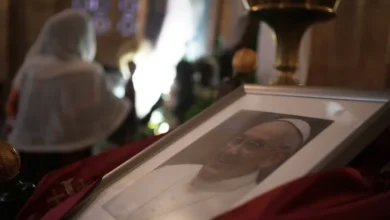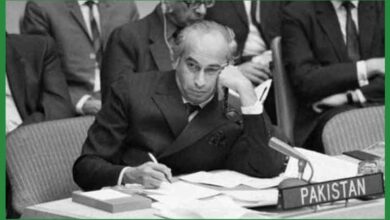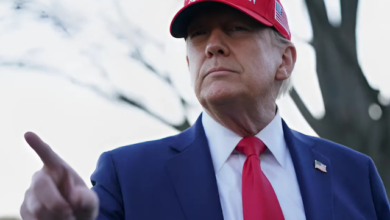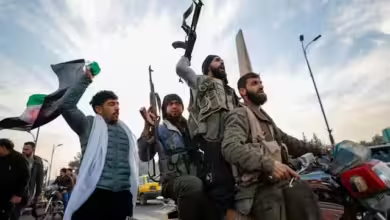Upheavals within state institutions are upending decades of silence for crimes known and unknown
We are in a very difficult phase right now. An unrepresentative government is busy shouting conspiracies at the top of its voice, adding to the already deep national divide.
While it may be seeking some unknown political advantage – unknown because nothing it does carries any weight – it is just adding to the problems we already face.
Upheavals within state institutions are upending decades of silence for crimes known and unknown. This is true both of the military and the judiciary. The arrest of Gen (r) Faiz Hameed and some other serving and retired officers is no ordinary event. Never before in our history has a former director general of the ISI been subjected to a court martial. Whatever the reasons behind it, the self-accountability of institutions can only be welcomed.
This prosecution of Gen Faiz comes on top of proceedings against many senior officers after May 9. That action too was not kept under wraps and was instead publicly announced. These visible steps will hopefully set a benchmark for proper military conduct. Most notably, it will hopefully discourage – if not eliminate altogether – any activity by military personnel that goes beyond professional.
We have a long history of behind-the-scenes manoeuvring by the military to make or break civil governments. This did not allow any to settle barring Mr Bhutto’s. His were exceptional circumstances after the tragedy of East Pakistan and we know what happened thereafter. The pace of intervention picked up after 1988 with no government settling down till Musharraf took over.
It is important to understand the mechanism of how intervention takes place. The military’s interest in politics opens a third window, allowing everyone aggrieved or ambitious to knock on it. If this is accompanied by active interest by the army chief in civil matters, the mechanism of change is set in motion. This creates perpetual instability for civil governments whatever their ideology or background. Both the PPP and the PML-N experienced this in the 1990s and the PTI was added to this list in 2022.
Military regimes are stable because aspirants to political power have no alternate window to knock on. This diminishes the possibility of palace intrigues, giving these governments a relatively smooth passage. They got knocked out in the end not because of their political adversaries but by a people’s movement. (The mechanisms of that I have explained in my earlier article in these pages: ‘How democracies endure’.)
Now to the goings-on in the Supreme Court, constitutionally one of three apex institutions of the state. What has been happening there in the last many years is no less than a thriller and would take many volumes to recount. If every story doing the rounds is to be believed, not a single judgment on politics and the state has been without some angle or the other.
That there has been a serious division in the judiciary is known and is not unusual. Most judiciaries in the world are divided by ideological views of state and government. The US Supreme Court as everyone knows is divided between six conservative and three liberal judges. In most cases, they decide on ideological lines and people might crib but it is not seen as a non-judicial conduct.
The problem in our case is that we attribute non-judicial and non-ideological motives to our judgments – and that applies to all parties. This has led to two very bad practices. One is using parliament to nullify judgments of the Supreme Court. This is desperate and as Justice Mansoor Ali Shah suggests non-implementation of SC judgments seriously damages the balance of our constitution.
The second is the targeting of serving and retired judges by name and threatening them. Trying to non-judicially hold judges to account for their judgments is ridiculous and will seriously damage the country. It’s like holding poets to account for bad poetry or shooting actors for their bad performances. If judicial forums have been exhausted and someone is not happy, tough luck. Happens all the time.
One strongly urges this foisted government to not open a new Pandora ’s Box by going after serving or retired judges. These times of power will not last; never have for anyone since humanity began. Trying to completely destroy any semblance of rule of law is a crime that will never be forgiven.
The institutional turmoil and polarizing activities of the government have not reduced threats to the state. There is a heart-rending uptick in terrorism. Every morning we wake up to more of our fearless soldiers, policemen, members of paramilitary forces and others laying down their lives to protect us. It is a long fight and many more sacrifices will be made over many more years before we win.
Nations face challenges. That is not unusual. What makes our situation more complicated is the turmoil within the ruling elite. This erodes unity of purpose as there is no agreement on common goals and no consensus on means to get there.
The possibility of everyone coming together is complicated by weak ownership of the state in what political scientists call the periphery. This means not only spaces in smaller provinces but also in southern Punjab and parts of Khyber Pakhtunkhwa.
While the ruling elite squabbles, the distance between the centre and the periphery continues to grow. The lack of concerted effort over the years to knit everyone together is paying an unwelcome dividend. Even those not in any way involved in any resistance to the state feel estranged.
Whether their grievances are genuine or just deliberate misperceptions marketed by the so-called vested interests, the end result is worrying. The narrative of alienation seems to have much greater resonance than statistics showing the largess or investment or development done by the state.
One is not trying to paint a doom and gloom scenario although there is much to be gloomy about. I am only suggesting that the difficulties the state faces are more complicated than commonly visible. The attempt at destabilization through terrorism or gaping financial black holes in a non-performing economy are overt manifestations of this challenge. The narrative of alienation – whether in the periphery or among the poor – is more deeply ingrained and harder to uproot.
This lack of a shared agenda among the social, political and institutional elite is more of a handicap than for example lack of funds, or this or that weapon. The elite of this country – whether political, military or judicial, professional or civil society and more – all have to come together and chart a new course for the nation.
If we continue on our current path with the elite squabbling, institutions not evolving, and no consensus in society, we are facing a difficult future.
The writer served as the federal minister of education in the PTI’s federal government. He can be reached at: shafqatmd@gmail.com







